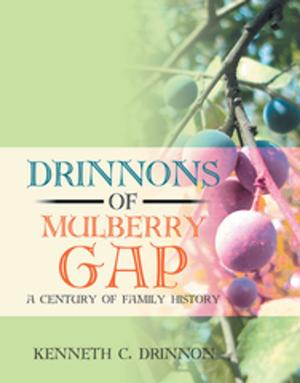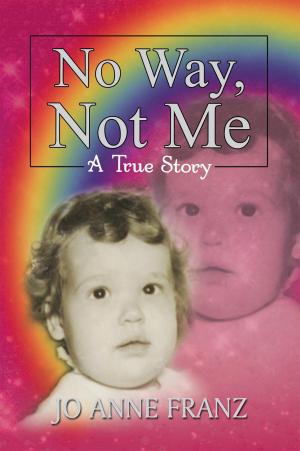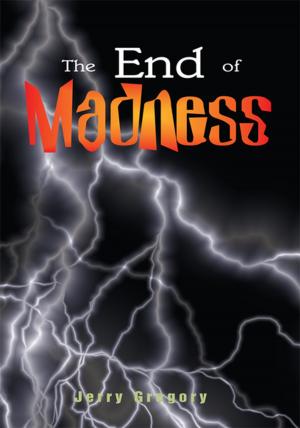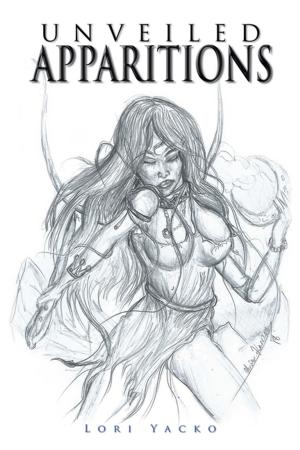| Author: | Tannie Stovall | ISBN: | 9781462823420 |
| Publisher: | Xlibris US | Publication: | June 28, 2005 |
| Imprint: | Xlibris US | Language: | English |
| Author: | Tannie Stovall |
| ISBN: | 9781462823420 |
| Publisher: | Xlibris US |
| Publication: | June 28, 2005 |
| Imprint: | Xlibris US |
| Language: | English |
Johnny is the concluding book of the Johnson Family saga. Like the first two books in the series, Booker and Leroy, it deals with the life of the Johnson family, an African American family that lives in France.
The novel begins after Johnnys prostate gland has been surgically removed because of cancer. The prospect that he will eventually die of the ailment does not bother him as much as the possible permanent loss of sexual potency. However, the experience does remind him that he is mortal which causes him to review his life. He concluded that the greatest threat to his serenity during the time that he has left is the imminent lost of love and respect of his grand children. Johnnys goal becomes to transform himself from ghetto to mainstream.
The first part of the book deals with Johnnys early life. He is born in a small town on the Chattahoochee River in Alabama. His scholastically and religious education are described as well as his ambitions and frustrations. He is saved from a impending mediocre life by enlisting in the Marines. In Korea, he becomes a war hero that later enables him to find decent employment in his hometown. He marries Louise, a local girl and yields to pressure from her for a honeymoon in Paris. The couple like Paris so much that they decide to remain there.
After two children, Leroy and Booker, the couple falls apart. The social pressures leading to the rupture are described. In Paris, the couple is acutely aware of their relative poverty and low cultural level. Johnny feels that they should concentrate on accumulating wealth whereas Louise desires to improve their social status. Johnny becomes a dealer in stolen merchandise, mostly items stolen from the US army by soldiers.
He and a French partner later open a cabaret for African American soldiers in Paris, which expanded into a series of bars, and other small businesses in the Paris area. Louise becomes increasingly cosmopolitan while serving as an international civil servant with UNESCO. Their different situation and prospective gradually makes life together untenable. Louise abandoned him and their children to follow her lover to Miami.
Years after Louise leaves, the couple now has grand children in France and Johnny has a second wife, Fabienne a woman from Guadeloupe. The improvement in the quality of life for African Americans in the United States, especially increasing jobs opportunities causes Johnny to question whether it would not be better for the grandchildren for the family to return to the United States.
Parallel to Johnnys story is that of one of his grand children, Aurlien. Aurliens parents and grand parents arranged for him to grow up in an upper class white neighborhood. Aurlien only becomes aware of the black community as a teenager. He then notices that he is treated him differently from his white school friends. His first awakening comes when he realized that some of his friends have a problem with him and white girls. A second wake up came when some of his friends join a secret racist group, Fofew, that one of his teachers organizes. Finally, he was the unintentional victim of a racist attack directed toward Obafemi, a Nigerian street drug dealer.
The contrast between the perception and treatment of Africans and African Americans in Paris is examined in detail. The ramifications of Africans trying to migrate to Europe in order to find a better life are also treated. Obafemi unsuccessfully attempts to find work in France and finally settles on dealing in illegal drugs after refusing pandering is one of the subplots. A distance relative of Obafemi, Ogunlana, moving from drug dealing to the establishment of an African prostitution rings because it was safer is also related. The stories of many other colorful African American characters that haunted Paris in the later half of the 20th century are also reveled.
A recurrent theme in the novel is Johnn
Johnny is the concluding book of the Johnson Family saga. Like the first two books in the series, Booker and Leroy, it deals with the life of the Johnson family, an African American family that lives in France.
The novel begins after Johnnys prostate gland has been surgically removed because of cancer. The prospect that he will eventually die of the ailment does not bother him as much as the possible permanent loss of sexual potency. However, the experience does remind him that he is mortal which causes him to review his life. He concluded that the greatest threat to his serenity during the time that he has left is the imminent lost of love and respect of his grand children. Johnnys goal becomes to transform himself from ghetto to mainstream.
The first part of the book deals with Johnnys early life. He is born in a small town on the Chattahoochee River in Alabama. His scholastically and religious education are described as well as his ambitions and frustrations. He is saved from a impending mediocre life by enlisting in the Marines. In Korea, he becomes a war hero that later enables him to find decent employment in his hometown. He marries Louise, a local girl and yields to pressure from her for a honeymoon in Paris. The couple like Paris so much that they decide to remain there.
After two children, Leroy and Booker, the couple falls apart. The social pressures leading to the rupture are described. In Paris, the couple is acutely aware of their relative poverty and low cultural level. Johnny feels that they should concentrate on accumulating wealth whereas Louise desires to improve their social status. Johnny becomes a dealer in stolen merchandise, mostly items stolen from the US army by soldiers.
He and a French partner later open a cabaret for African American soldiers in Paris, which expanded into a series of bars, and other small businesses in the Paris area. Louise becomes increasingly cosmopolitan while serving as an international civil servant with UNESCO. Their different situation and prospective gradually makes life together untenable. Louise abandoned him and their children to follow her lover to Miami.
Years after Louise leaves, the couple now has grand children in France and Johnny has a second wife, Fabienne a woman from Guadeloupe. The improvement in the quality of life for African Americans in the United States, especially increasing jobs opportunities causes Johnny to question whether it would not be better for the grandchildren for the family to return to the United States.
Parallel to Johnnys story is that of one of his grand children, Aurlien. Aurliens parents and grand parents arranged for him to grow up in an upper class white neighborhood. Aurlien only becomes aware of the black community as a teenager. He then notices that he is treated him differently from his white school friends. His first awakening comes when he realized that some of his friends have a problem with him and white girls. A second wake up came when some of his friends join a secret racist group, Fofew, that one of his teachers organizes. Finally, he was the unintentional victim of a racist attack directed toward Obafemi, a Nigerian street drug dealer.
The contrast between the perception and treatment of Africans and African Americans in Paris is examined in detail. The ramifications of Africans trying to migrate to Europe in order to find a better life are also treated. Obafemi unsuccessfully attempts to find work in France and finally settles on dealing in illegal drugs after refusing pandering is one of the subplots. A distance relative of Obafemi, Ogunlana, moving from drug dealing to the establishment of an African prostitution rings because it was safer is also related. The stories of many other colorful African American characters that haunted Paris in the later half of the 20th century are also reveled.
A recurrent theme in the novel is Johnn















